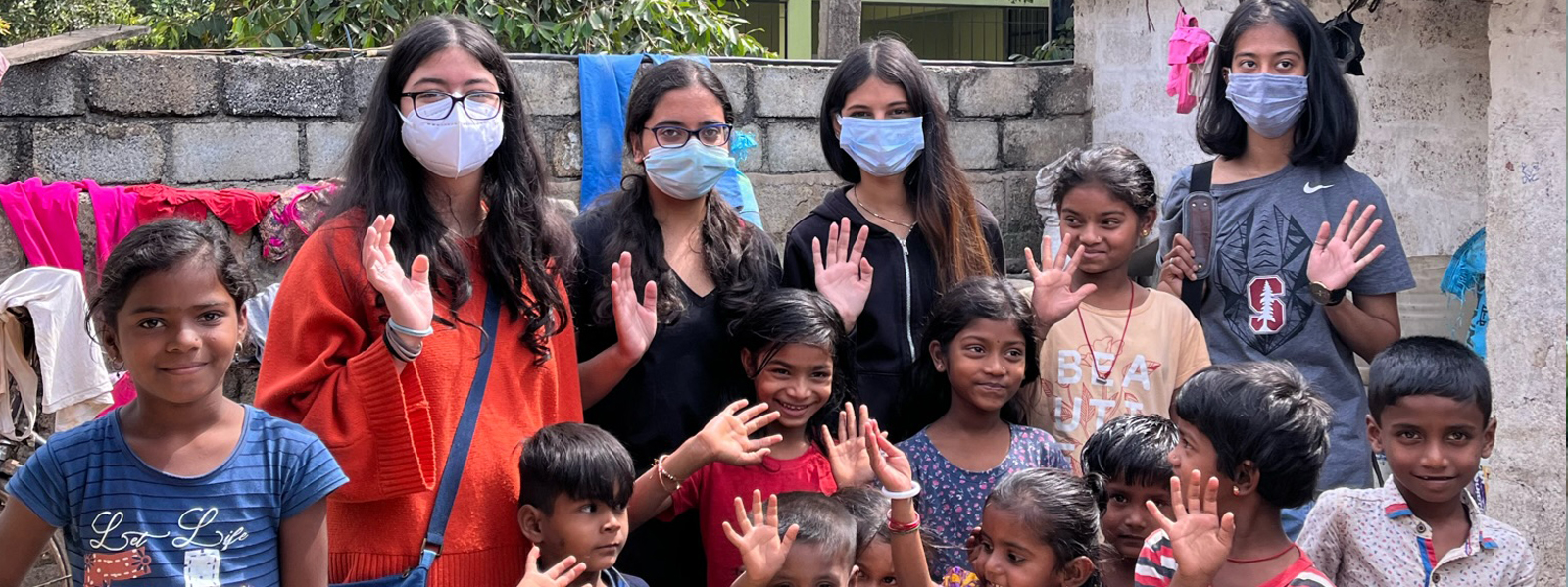

ASAN cups
Periods are such a routinely part of our lives. Of course, they’re annoying, and many of us wish they could just go away forever. And so, whilst they might make us skip a day or two of school from pain or lethargy, it is difficult to imagine a life where we have to drop out of school altogether when our periods begin. Unfortunately, this is the reality for over 20 million girls in India every single year. A widespread lack of awareness and access to sanitary products is the true cause of this. In so many of the communities around us, menstruation is an incredibly taboo topic; unfairly stigmatising young girls who clearly don’t have control over the matter.
We dearly hope we can make a change by helping the women and girls in the community we work with to have safe periods using hygienic products.
In our initial survey of the community, we found about 80 women and girls who were menstruating. Some of them used nothing but scraps of cloth during their period, which clearly poses hygiene issues that could lead to serious health consequences. This we decided we must do something about.
On our journey to accomplishing this, we started by partnering with ASAN, an organisation promoting period equality and safe menstruation. They sell menstrual cups, which are a sustainable way of managing periods. With the help of some of our contacts over at ASAN, we shaped a plan of action.
One afternoon, equipped with a bag of menstrual cup kits, a portable projector and a laptop, we set off to visit the community, feeling a little nervous. We were not sure of how the workshop would be received. Doubts flitted through our minds. Would the women be open to learning about, and eventually using menstrual cups? What hesitations might they have? Knowing we were trying to achieve something major here, we aimed to have just a few, perhaps three or four women who would be interested and open to implementing this change in their lifestyle. Then maybe these few women could influence the rest of the community.
We gathered a group of around 15 women, and ASAN began conducting the workshop. They explained how the cups could benefit their daily lives and how to use and safely store them. At first, the women seemed to be slightly hesitant, probably due to a mixture of the several distractions around us—children playing, dogs barking—and an initial wariness to approaching this taboo topic. However, slowly, as the workshop progressed, and videos were played in Kannada of testimonies from other women using this product, we noticed many of them becoming more comfortable. They began taking a much more active interest in understanding how to use menstrual cups.
We noticed one woman, Shabana, intently listening to the demonstration of how to use the cups, appearing very interested and eager to learn. As she encouraged her friends to learn how to use the product and ask questions, everyone seemed more participative.
One of the aspects stressed upon greatly during the workshop was the safety protocols to follow while using the menstrual cups, and the women were made to repeat them so that they wouldn’t forget.
After the workshop, we began distributing the menstrual cups to those interested in trying them. Almost all the women took one, and as they collected their boxes, they also took the opportunity to ask more questions or for a repeat demonstration. The atmosphere at the end of the session differed significantly from the initial mood, as everyone’s awkwardness and reluctance had faded away.
Seeing so many women willing to try out the menstrual cups was heart-warming. The next step is to see whether the women will regularly use the cups since it might take a while for them to quite drastically change their routine. We will now focus on following up regularly to ask them if they are using the cups and whether they have any problems or doubts. In our first follow-up call, Shabana told us that she used the cups for two days and found it very comfortable. Hopefully, she can encourage more women from the community to also use menstrual cups.
Through this experience, we were exposed to new perspectives that forced us to take another look at the privileges we take for granted, such as having safe and hygienic periods and living in a more socially inclusive environment. We hope that we make an impact, even if it is small, on the lives of the people of the community. Through menstrual cups, these women can live through much safer, hygienic and dignified periods. We also want to use our experience with this community to help impact others who are faced with this issue every single month.
To the women we met and gave out the cups to, we hope that we made the experience of getting your period a little easier and safer. Thank you for being open to us and listening to what we had to say.
Copyright © 2025 Anugraha Project. All rights reserved.
